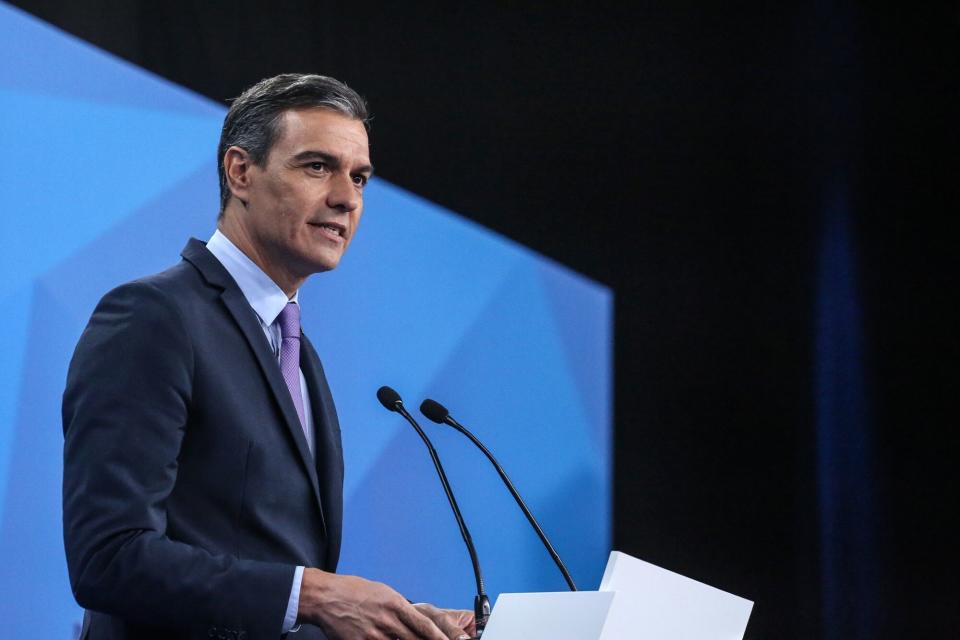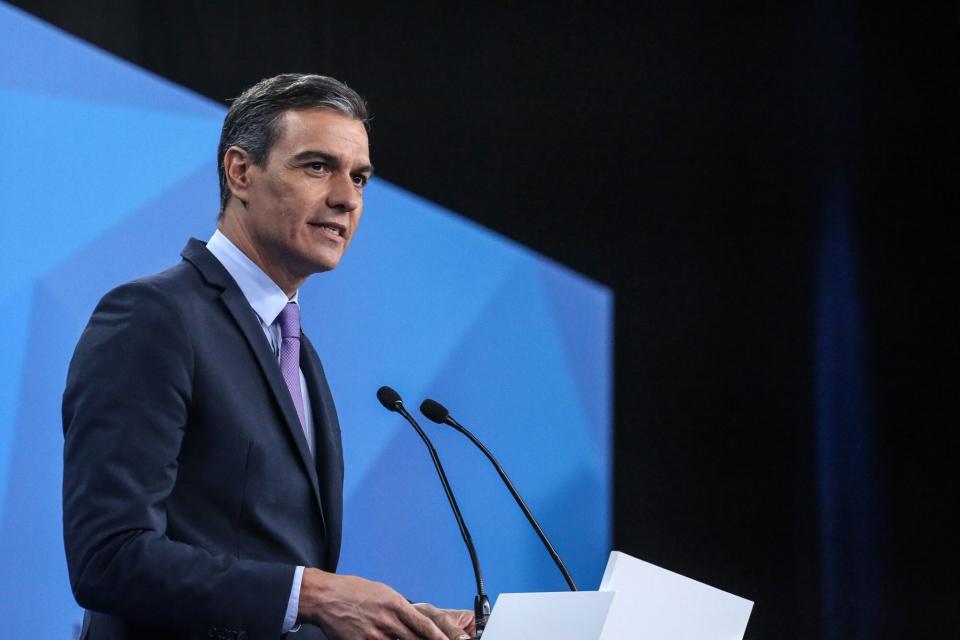Spain Poised to Find Out If Sanchez Will Quit as Premier
- Oops!Something went wrong.Please try again later.
(Bloomberg) -- Spanish Prime Minister Pedro Sanchez plans to say on Monday whether he’ll quit, raising the threat of worsening uncertainty and political gridlock in Madrid.
Most Read from Bloomberg
Sanchez, whose Socialist-led minority coalition is Spain’s weakest government in some 90 years, brought Spain to the brink last week by publicly wondering whether it’s “worth it” to stay on and dropping from sight to reflect on his future. That followed the opening of a judicial investigation into his wife’s business dealings.
Sanchez said on April 22 he’d announce his decision on Monday. He will make the announcement at 11 a.m. from the Moncloa government palace.
Resigning would take Spain into uncharted territory with no obvious successor, separatist parties on the rise in parts of the country and no guarantee that the conservative opposition could muster a government. No Spanish prime minister has stepped down in mid-term since 1981.
Thousands of supporters rallied outside the Socialist party’s headquarters in Madrid on Saturday urging Sanchez to stay as premier, a post he has held since 2018. Sanchez, 52, has called the probe of his wife part of a far-right smear campaign. Deputy Prime Minister Maria Jesus Montero, seen as a possible Sanchez successor, stepped outside to encourage the crowd.
Officials and colleagues close to Sanchez argue that his resignation would push Spain and his party into chaos. Possible fallout includes Catalonia, the second-largest region, which holds local legislative elections May 12 with Sanchez’s Socialists on track to take power from the incumbent separatists.
If he stays, Sanchez could try to strengthen his standing by seeking a confidence vote in parliament. He could also call a national election, something he can’t formally do until the end of May.
“If Sanchez decided to stay, that is where the question comes in: is it enough for him to say that he is staying?” said Pablo Simon, a political science lecturer at the Carlos III University in Madrid. “Not in my opinion, because the political gamble has been very big, very intense.”
Any decision involving a confidence vote or anointing a successor would require the Socialists to strike deals with at least six other parties, including two Catalan separatist groups and two pro-independence Basque groups, PNV and Bildu. The heads of PNV and Bildu both indicated they’d support Sanchez if he calls a confidence vote.
Carles Puigdemont, of the Catalan group Junts, recently said his party has lost confidence in Sanchez, opening the door to voting against him or demanding he name a successor.
The conservative People’s Party, which holds the most lower-house seats in Madrid, faces its own challenges. To cobble together a government, it would need the support of at least one separatist party, all of which have ruled out cooperation with the PP.
Sanchez has presided over growth that has regularly ranked among the highest in the euro area, even though Spain’s tourism-heavy economy took a bigger hit than many others during the Covid-19 pandemic. Yet he has faced criticism for expanding debt and failing to get his fractious coalition to back major policy projects, which hampered Spain’s ability to tap European Union recovery funds.
Sanchez’s wife, Begona Gomez, came under scrutiny after being targeted in a complaint by an organization with far-right links, Clean Hands, that’s known for trying to take left-leaning politicians and policies to court.
--With assistance from Thomas Gualtieri and Clara Hernanz Lizarraga.
(Updates with revised time of announcement in third paragraph.)
Most Read from Bloomberg Businessweek
Modi Is $20 Trillion Short on His Grand Plan for India’s Economy
Biden Strategy to Tame Gas Prices Is in Peril as Iran Sanctions Pressure Mounts
©2024 Bloomberg L.P.



